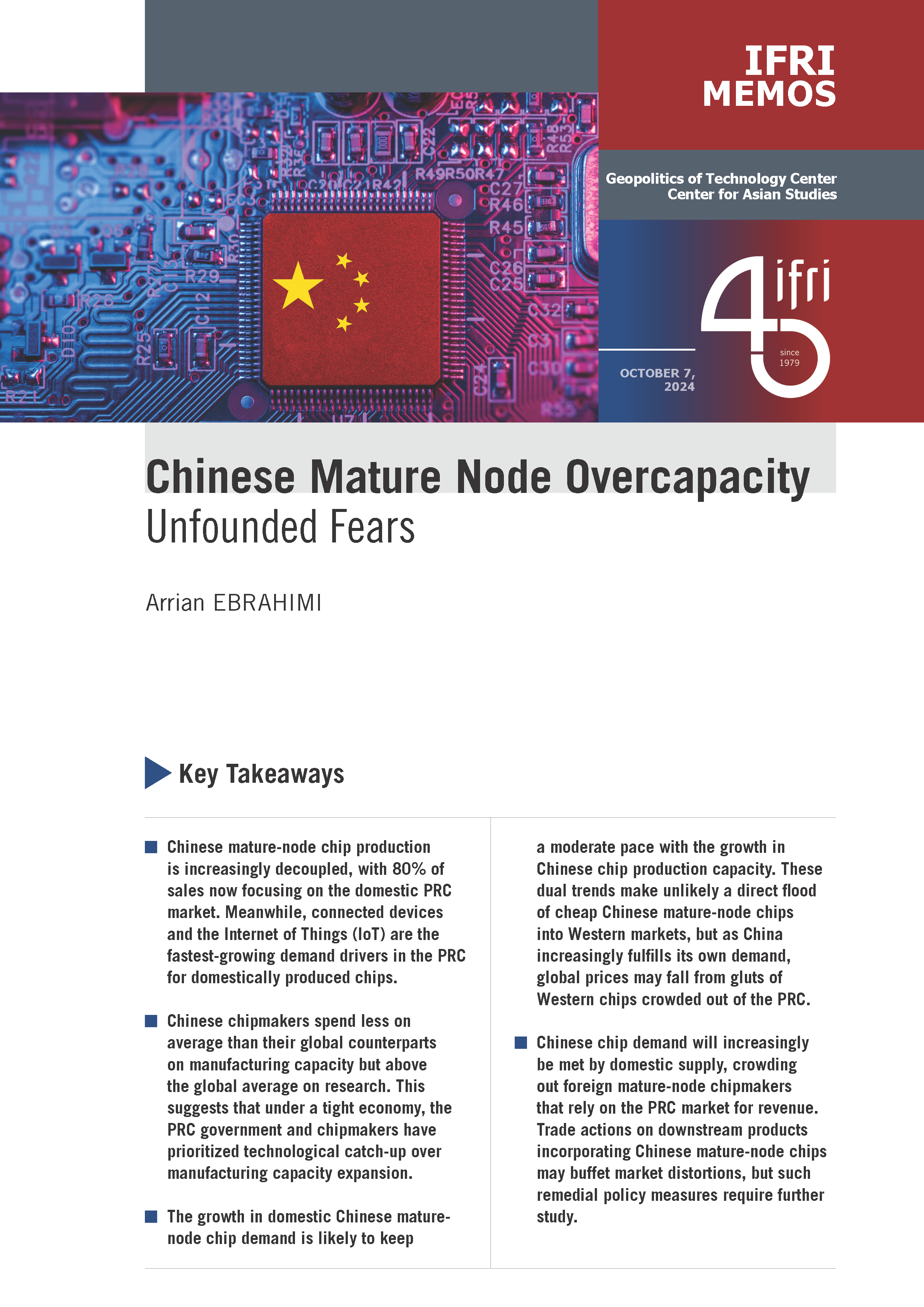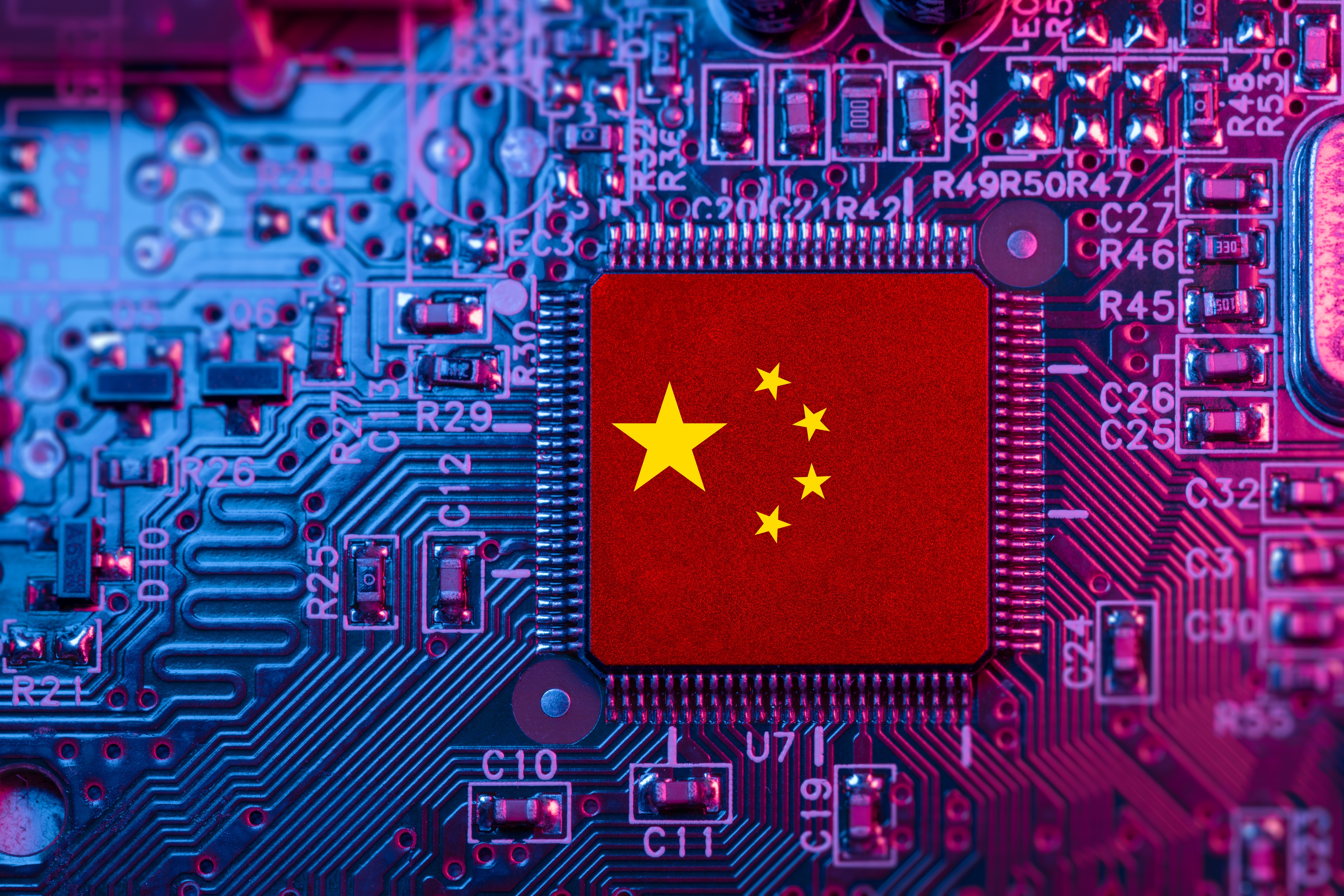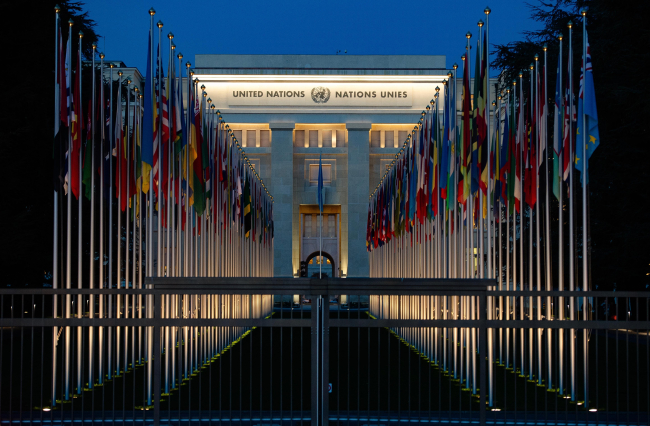China’s Mature Node Overcapacity: Unfounded Fears

China is decoupling from, not flooding, the global mature-node semiconductor market. As China increasingly pursues industrial policies encouraging domestic chip production, its own growing chip demand will prevent a direct flood of cheap Chinese chips on foreign shores. However, as Beijing achieves its goal of decreasing the reliance of domestic downstream manufacturers on foreign chips, European and American mature-node semiconductor companies will feel the ripple effects of an increasingly “involuted” Chinese chip ecosystem.

Key Takeaways:
- Chinese mature-node chip production is increasingly decoupled, with 80% of sales now focusing on the domestic PRC market. Meanwhile, connected devices and the Internet of Things (IoT) are the fastest-growing demand drivers in the PRC for domestically produced chips.
- Chinese chipmakers spend less on average than their global counterparts on manufacturing capacity but above the global average on research. This suggests that under a tight economy, the PRC government and chipmakers have prioritized technological catch-up over manufacturing capacity expansion.
- The growth in domestic Chinese mature-node chip demand is likely to keep a moderate pace with the growth in Chinese chip production capacity. These dual trends make unlikely a direct flood of cheap Chinese mature-node chips into Western markets, but as China increasingly fulfills its own demand, global prices may fall from gluts of Western chips crowded out of the PRC.
- Chinese chip demand will increasingly be met by domestic supply, crowding out foreign mature-node chipmakers that rely on the PRC market for revenue. Trade actions on downstream products incorporating Chinese mature-node chips may buffet market distortions, but such remedial policy measures require further study.

Available in:
Themes and regions
ISBN / ISSN
Share
Download the full analysis
This page contains only a summary of our work. If you would like to have access to all the information from our research on the subject, you can download the full version in PDF format.
China’s Mature Node Overcapacity: Unfounded Fears
Related centers and programs
Discover our other research centers and programsFind out more
Discover all our analysesRegulatory Dynamics and Tensions in the Space Sector: Towards and Americanization of Space Law?
The development of space law has gradually evolved from a top-down normative dynamic dominated by the founding impetus of the UN to a bottom-up normativity driven by national and industrial practices. This evolution is now accompanied by growing normative competition, raising the risk of an Americanization of space law and prompting the question of a European response.
The Sustainability of Space Operations: An Opportunity for European Leadership?
As space becomes a key arena for power projection strategies, while facing growth and diversification of orbital activities, the concept of “space sustainability” is emerging as a new framework of analysis for space governance.
The “Huawei Saga” in Europe Revisited: German Lessons for the Rollout of 6G
While the European Union attempted to coordinate a collective response through its 5G Toolbox in Europe’s 5G infrastructure, member states diverged significantly in balancing political, economic, and technological considerations. Germany, despite its economic ties to China and status as Europe’s largest telecom market, only reached a tentative agreement in July 2024—one that appears largely symbolic.
European Startups and Generative AI: Overcoming Big Tech Dominance
Europe is at a crossroads. Faced with the domination of American Big Tech across the entire generative Artificial Intelligence (AI) value chain, from foundation models to cloud infrastructure, distribution channels, and open source, it risks long-term technological and economic decline. Yet generative AI also represents a major opportunity for economic transformation, with a potential value estimated at 1.5 times France’s gross domestic product (GDP). To turn it into a driver of renewal, Europe must move beyond the illusion of total technological independence and instead build an ecosystem that leverages Big Tech resources while strengthening its own innovation capabilities.










